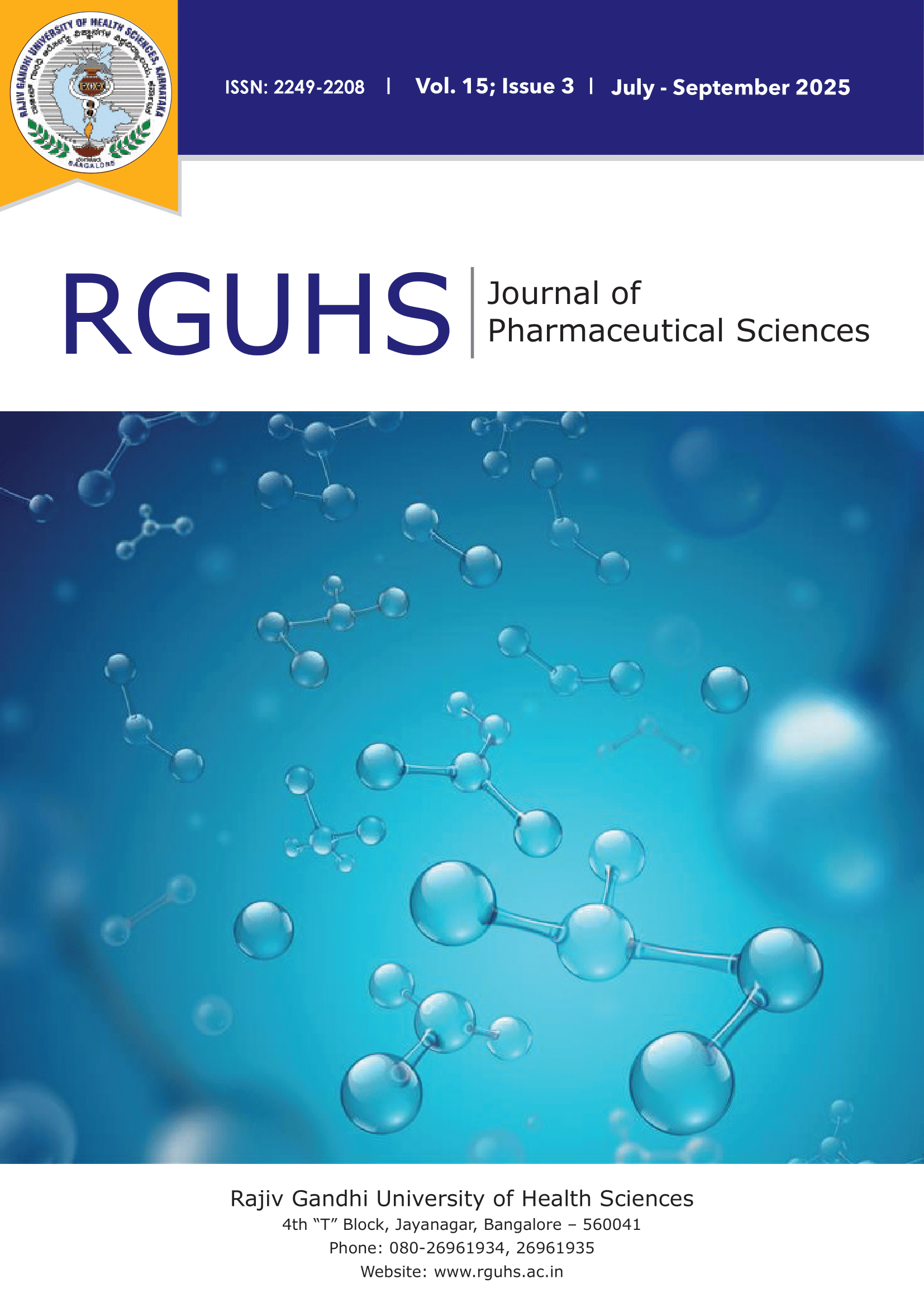
RJPS Vol No: 15 Issue No: 3 eISSN: pISSN:2249-2208
Dear Authors,
We invite you to watch this comprehensive video guide on the process of submitting your article online. This video will provide you with step-by-step instructions to ensure a smooth and successful submission.
Thank you for your attention and cooperation.
1M.Pharm. Ph.D. Editor-in-Chief, RJPS, Dean, MVM College of Pharmacy, Bangalore.

Abstract
None
Keywords
Downloads
-
1FullTextPDF
Article
Medical research is in the phase of major transformation in India. In addition to individual and council/academic institution or laboratory based projects, medical research has an added component of hi-tech national and international multi-centric studies. As India is one of the fastest growing economies in the world, the global health sector industry is finding huge market in the Indian population.
One direct fall out of this market opportunity is that it has become prudent for global health sector industry to include India in all the multi-centric studies, whether it be new drug development, new device(s) or data registries. Medical research has transformed from low resource effort to an organized multi-million dollar industry.
This has also created the need for trained clinical research professionals, and a promise for opportunities to thousands of young trainers. The clinical trials market worldwide is a multibillion affair and India is emerging as a clinical research hub. The infrastructure including health care facilities, medical professionals, supporting staff, technological equipment’s involved in patient care and diagnostics, and trained clinical research personnel are available in most of the leading cities of India and offer a research infrastructure at par with other developing and developed centres around the world. Better clinical trials conducted in India on Indian population can yield useful data pertinent to the country and will find application towards enhanced medical/ health care and better health promotion. The results of medical research should also be used to design strategies to prevent diseases in the most cost-effective manner.
Clinical medical research has become an essential component of the health sector industry. Clinical development is conducted to obtain regulatory approval for general medical use and to demonstrate the quality, safety and efficacy of the drug or device. Several concerns are investing a much higher percentage of their total revenue on research and development programs to develop cure for diseases viz. HIV, tuberculosis, malaria. The Indian biopharmaceutical and biotechnological industry is growing at a significant pace. India is amongst the top twelve global biotech hot spots and is third largest in the Asia-Pacific region. Biopharma in India is the biggest contributor to biotech sector, accounting for 75% contribution. Diagnostics, vaccines and recombinant therapeutic proteins are the three main segments in the biopharma industry. Biopharmaceuticals are medical drugs produced using biotechnology. Products that have been licensed for production or/and marketing in India include human insulin, hepatitis-B vaccines, streptokinase, erythropoietin, human growth hormone, human interleukin, recombinant interferon beta 1-B, granulocyte colony stimulating factor, granulocyte macrophage colony stimulating factor, blood factor VIII, follicle stimulating hormone, tissue plasminogen activator.
Alternative principles of Ayurveda, Homeopathy, Siddha, Unani and Herbal medicine have socio cultural acceptance with large citizenry, but scientific research is needed so that these modalities can be incorporated as standard treatment regimens for common problems in the population. Research on herbal preparations needs to be conducted scientifically so that it can conform to the modern patenting system. Scientific research should also be able to link various disciplines of alternative medicine with each other and also with modern medicine, a possible convergence for global use.
RGUHS course content for each discipline is highly focused in research training. Advanced research department extensively promotes research in all the branches. The University publishes eight peer reviewed journals to encourage academic researchers publish their findings.
We encourage all the readers to make best use of the facilities and grow in research
Supporting File
References
None